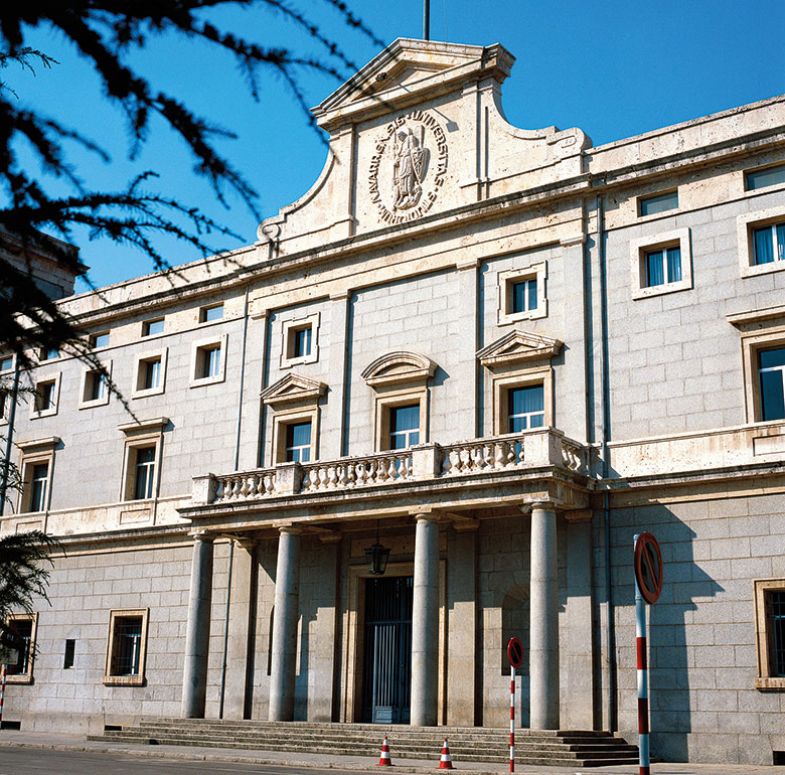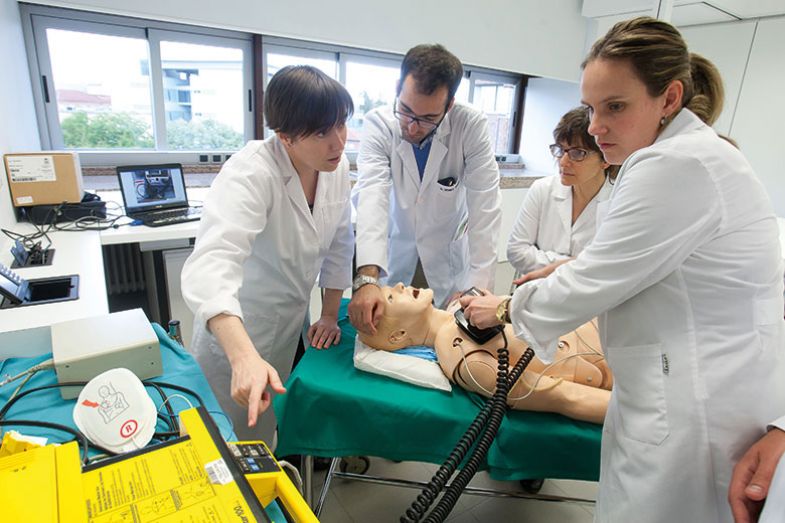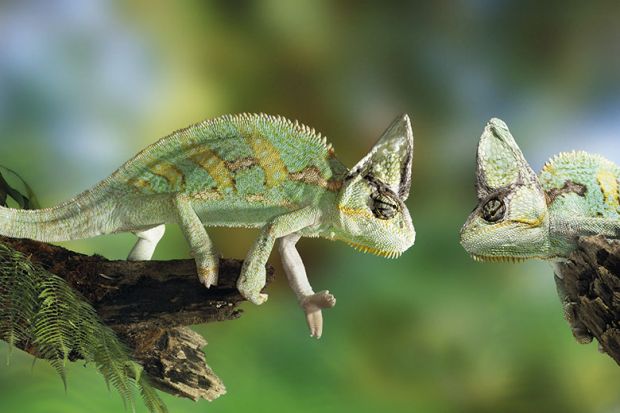Browse the full Times Higher Education Europe Teaching Rankings 2019 results
The student experience is based primarily on the quality of university teaching and services and employment opportunities. However, in addition to academic aspects, training university students involves nurturing their personal development and creating an atmosphere of cooperation and collaboration between students and teaching staff and among students themselves where they can grow professionally and also as people.
Economic, social and cultural transformations are forcing the job market to evolve, and students must have the capacity to learn quickly and embark on a process of continuous training. Our responsibility is to provide students with tools for adapting to this new job environment that they can use throughout their lives and we can do this through comprehensive training. Our mission is to favour the acquisition of technical knowledge specific to each degree programme, as well as the cross-competencies required of good professionals. Skills such as critical thinking and reflection, decision-making, teamwork, communication and negotiation, problem-solving and initiative multiply students’ chances of finding a job.
Moreover, in a globalised world where students will face an increasingly complex and diverse reality, universities must provide tools that help them to find the connections between the information and skills they acquire throughout their lives. This will enable them to respond to questions raised by society.
In this context, the University of Navarra has developed different methods to improve its teaching programmes and adapt them to the needs of society and the employment market. One method is integrative learning, which enables students to discover the connections between the skills acquired in different subjects and thus avoid compartmentalised knowledge. Studying a legal case from the perspective of different branches of the law and encouraging future medical, nursing and pharmacy professionals to work as a team are two examples of how this method is implemented in an attempt to blur the lines between different subjects and disciplines. The aim is to unite theory and practice – the academic and professional worlds – so that university students are better prepared when they start working in a multidisciplinary, globalised context.
Another new teaching feature we have implemented is service learning, which combines the study of curricular content and subject skills with community service. Future architects rebuild a school in Kenya, economics students prepare market studies for small and medium-sized businesses, and future educators teach Spanish as a foreign language to immigrant children. These experiences teach and transform, promote personal development and help improve students’ understanding of the real world.
The students’ social commitment outside the classroom is also supported through the promotion of professional volunteer work and community service internships. In addition, the promotion of social, cultural and sports activities represents a further advantage of the campus experience. The University of Navarra is practically a residential university; it’s not just about attending classes – we want the campus to form an important part of each student’s life, too.

That’s why the university provides comprehensive help to students who combine extracurricular activities with their university studies. One example is the Sports Talent Programme, which provides support to student athletes to reduce the difficulty of studying a university degree, even when competing at international level. Another competence the university supports is entrepreneurship. The Entrepreneurship Unit-Innovation Factory is a cross-cutting project that promotes enterprise through training and support for the creation of start-ups by students, researchers and alumni.
Another initiative we have launched is the Core Curriculum, a set of cross-disciplinary subjects included in all degree programmes to offer a humanistic education and an intellectual framework that is based on the main tenets of Christian thought and encourages a spirit of solidarity and the development of critical capacity. These subjects address the main questions of human existence within the context of a liberal education model that helps form mature, free people.
But creating a quality student experience involves more than innovative teaching methods. It is marked primarily by the student-teacher relationship. Along with research, teaching and community service, mentoring is one of the University of Navarra’s key commitments and forms an essential part of the work carried out by all members of the teaching staff. All students are assigned a teacher as a mentor during their years at the institution. Mentors freely and confidentially help students develop all their personal potential.

This atmosphere of collaboration, cooperation and interpersonal relations arises from the different geographic origins of teaching staff and students. At present, 25 per cent of undergraduate students come from outside Spain, as do 10 per cent of teaching staff.
The international dimension is a reality and a challenge for universities and has forced us to adapt our teaching methods and consider different modes of interaction to guarantee an enriching experience for both Spanish and international students. The University of Navarra is working with improved guidelines for teaching staff and administrative and service personnel on dealing with these students appropriately inside and outside the classroom, given that they often have different needs depending on their origin.
Another current challenge is online instruction. This is an area we feel must be improved and adapted to traditional classes because the campus experience is irreplaceable.
Overall, these are the ways we are working to improve teaching and adapt it to current needs without losing all the advantages of personal relationships. In these relationships, students feel they are participants and co-creators of campus life, not mere receivers of university activities.
Alfonso Sánchez-Tabernero is president of the University of Navarra.
后记
Print headline: Teach and transform




